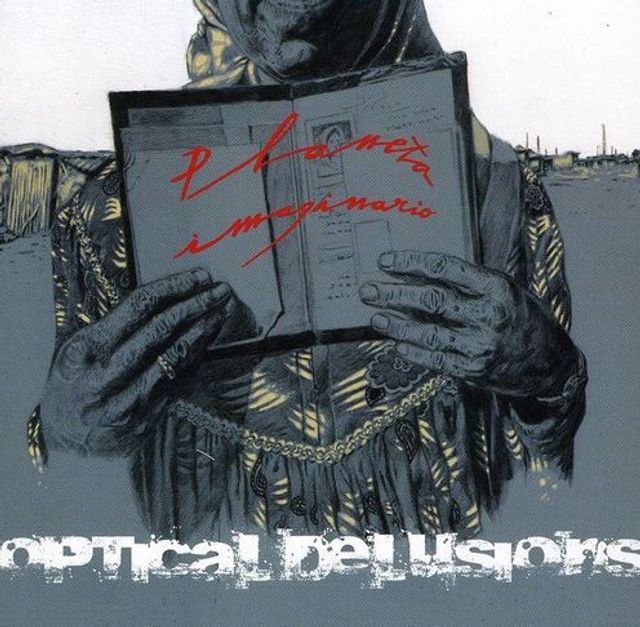Home
Optical Delusions
Barnes and Noble
Optical Delusions
Current price: $18.49


Barnes and Noble
Optical Delusions
Current price: $18.49
Size: OS
Loading Inventory...
*Product information may vary - to confirm product availability, pricing, shipping and return information please contact Barnes and Noble
Fans of the Canterbury scene should thank
, and specifically the band's keyboardist,
, for resurrecting sounds thought lost, as they say, to the dustbin of history. Way back in the '60s and '70s, British bands like
,
, and
melded jazz and prog into a jazz-rock hybrid that was long on inventiveness and thankfully short on pomposity, but was nonetheless swept away along with the more grandiose aspects of prog by the advent of punk. Some old Canterbury warriors are still playing today, others have sadly passed on, and now and then a new batch of young musicians takes inspiration from
et al. -- including this Spanish group appearing on its second
album,
, in 2011. The Canterbury sensibility is immediately evident on the first track, "Collective Action," with
's electric piano voicings echoing
's work with
. But there is much more: on this disc
are a sextet of keyboards (
), fretless bass (
), and drums (
) augmented by a three-piece horn section (trumpet, trombone, and saxophones) plus four guest musicians on assorted brass and reeds. So while
's keys first recall
in
, and then
again in his pre-
trio
, and even a bit of
from
, those horns and reeds announce themselves in alternately breezy and incisive arrangements (also courtesy of
) that suffuse the album with a jazzy "little big band" feel. Think of
's short-lived 1969 septet incarnation with its four-piece horn/reed section -- or even some hints of
in the horn charts of the concise and funked-up "Hemangloma." But for the most part,
seems firmly ensconced in the world of Canterbury and related groups. "The Garden of Happy Cows" (with strong sax solos over heated extended grooves) features some squelchy synth suggesting
's switch doctor
circa
, a connection made even more clearly during the piece's spaced-out keyboard ostinato conclusion, which segues into the free-form intro of "Xarramandusca," with
firmly in
territory on soprano sax. Later in the track a bit of very
wah-wah organ appears, a seeming homage to the granddaddy of Canterbury keyboardists, although perhaps most impressive of all are the burning organ tones
employs on driving solos in the aforementioned "Garden" and the album-concluding "The Sea...and Later the Sun...and the Reflection," very much in the mold of
's workouts on the extended jams of
(and the quite nice flute and sax on the latter track sounds very much like
).
' retro-progressive (how's that for an oxymoron?) keyboard voicings are rare in this type of jazz-rock context -- even in today's
groups -- and their presence here is cause for celebration. ~ Dave Lynch


















